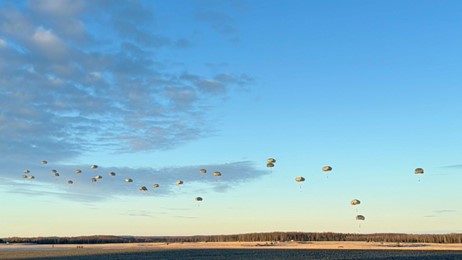In its dramatic reach for global dominance, China has ignored both geographical reality and global agreements to pursue territorial gains. While Beijing’s activities in the Indo-Pacific region have been noted, particularly in its aggression against the Philippines and Taiwan, its threatening moves in the Arctic have received lesser attention. Combined with Russia’s massive military presence in the far north, the U.S. and its allies are at an increasingly dangerous disadvantage.
There is no governing treaty, as there is in Antarctica, which mandates that the area be used only for peaceful purposes.
The Arctic Institute reports that “While China is located 1500 kilometers south of the Arctic Circle, Beijing is evidently interested in the region in terms of economic activities, international partnerships, scientific research, regional governance, and demonstrating the nation’s return to its historical role as a great power. China’s role in the Arctic continues to be a significant development in international politics. At the strategic level, there have been instances of Sino-Russian joint military maneuvers around the Arctic.”
Both the United States and Russia have taken note. Russia maintains that key portions of the region, including the Northern Sea Route, are part of its “Strategic patrimony.” It backs up that claim with an overwhelming military advantage in the area.
A Chatham House analysis warns that “Russia’s seeks consistent control over foreign military activity in the Russian Arctic, and ensured access for Russian armed forces, particularly the Northern Fleet…Parts of the armed forces, such as the Arctic Brigade, are now Arctic-capable and have developed concepts of operations tailored to that environment. The Northern Fleet has been repurposed with the Arctic environment in mind, and has been provided with Arctic-specific military technology and training.”
Russia’s military activities in the region are long-standing, but China’s intense interest in new and growing.
A Pentagon review featuring Iris A. Ferguson, the deputy assistant secretary of defense for Arctic and Global Resilience, speaking at Center for Strategic and International Studies noted that “The Arctic strategic environment is changing profoundly, and the United States must pay greater attention and dedicate more resources to this crucial area.”
Ferguson stressed that “China is, by no means, an Arctic nation. But Chinese leaders see the region as a new crossroads of the world, a new source of raw materials and new avenues for manifesting its growing power.”
She pointed out that China is working closely with Russia in its attempt to be seen as an Arctic power. Putin is investing heavily on military and economic strategies in the Arctic. “We’re seeing Russia continue to have immense focus on the Arctic region… we still see them … heavily focused on the region.”
Ferguson reports that “Even more disturbing is the increasing levels of collaboration between Russia and China especially in the military domain, she said. Russia and China exercised together in the Bering Strait in summer of 2023. “Just this past summer, right after we released our department strategy, we saw a joint bomber patrol off of the coast of Alaska.There has also been increasing cooperation between the Chinese and Russian coast guards in the region.
The Scandinavian Journal of Military Studies illustrated that true Arctic regional nations are substantively worried. “China’s Arctic strategy follows what we describe as a ‘comprehensive approach’ consisting of four main arms: political, economic, scientific, and military. This strategy is designed to advance the party-state’s influence in the Arctic through simultaneously molding discourses and challenging legal concepts of the Arctic (political), boosting its economic interests in the Arctic (economic), fusing civil-military scientific and technological innovation (scientific), and preparing for a military presence in the Arctic (military). Finally, the article concludes that as the significance of the Arctic for China’s long-term security strategy is guided by Xi Jinping’s thought on total national security, future analyses of China’s Arctic intentions should pay particular attention to this evolving concept.”
Photo: Nearly 800 paratroopers assigned to the 2nd Infantry Brigade Combat Team (Airborne), 11th Airborne Division, jump into Malemute Drop Zone, Alaska, Oct. 15, 2024.
